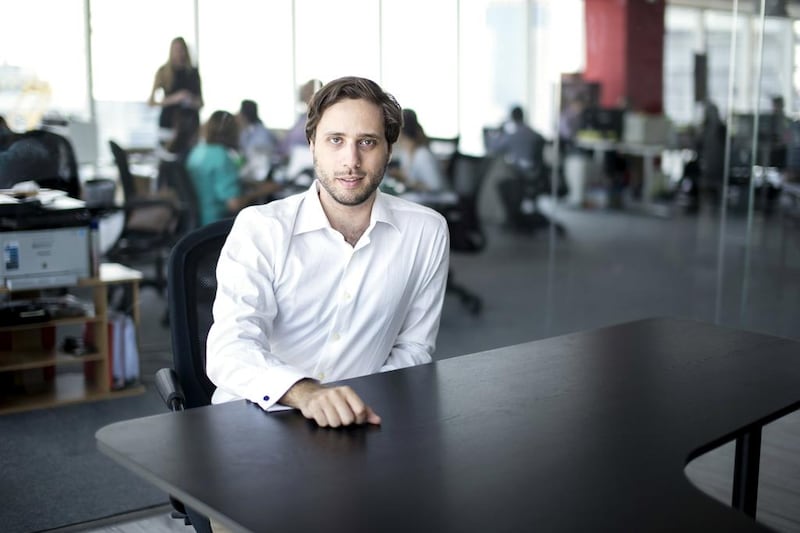Rocket internet has made a business out of cloning other businesses – and its new UAE venture is no exception.
The German web group on Tuesday announced the local launch of Vaniday, an online marketplace that allows users to book appointments at spas and salons.
The site resembles an existing UK service called Wahanda. Both websites list beauty and wellness services, allowing users to book and pay for appointments directly, taking a cut of the fee.
Founded by the brothers Oliver, Alexander and Marc Samwer, Berlin-based Rocket has stakes in scores of web businesses active in more than 110 countries. It listed on the Frankfurt Stock Exchange in October, marking Europe’s largest e-commerce flotation in a decade and valuing the company at €6.5bn (Dh26.8bn).
Dozens of the operations it has stakes in are essentially copies of existing ventures – the likes of Lazada, Linio and Jumia are Amazon.com for the emerging markets, BillPay is the PayPal of Germany and while EasyTaxi is Rocket’s take on Uber.
Vera Futorjanski, the co-founder and managing director of Vaniday in the Middle East and who has worked for Rocket-backed companies for 18 months, dismissed criticism levelled by some that Rocket internet was a mere “clone factory”. She said it was the implementation, not the idea itself, that matters in the internet age.
“You can have these great ideas, but then it’s about how you execute them,” she said. “Who else is like Rocket, in so many countries worldwide with so many ventures and companies?”
Existing salon-booking sites include Styleseat or Vagaro. But the UK site Wahanda, which was founded in 2008, is “the model that we are most similar to,” Ms Futorjanski said.
Loop Champalimaud, the founder of Wahanda, was gracious about the launch of Vaniday when contacted by The National.
“Wahanda is the first company founded and launched in Europe that Rocket internet has cloned,” he said. “As such, we are flattered – it validates our ambitions to disrupt the beauty services industry and bring a highly fragmented industry online.”
Regional tech experts said that there was nothing wrong with Rocket’s business model and the launch of Vaniday in the UAE.
“I’m not so concerned with whether the idea is a clone or not, because it’s all about the implementation,” said Omar Christidis, the founder and chief executive of ArabNet, the region’s biggest digital media event.
“It’s all fair game, and the winners will be the companies that can build traction and grab market share.”
But others have been more critical of Rocket’s model of copying the ideas of others. Jason Calcanis, a serial entrepreneur and angel investor, tweeted last year that Oliver Samwer, Rocket’s chief executive, was “more like a low-class thief” than the “German Mark Zuckerberg”, as one magazine had claimed.
Dino Wilkinson, a partner at the law firm Norton Rose Fulbright in Abu Dhabi, said the existence of competing websites in the same field was positive for consumers.
He said, unless intellectual property rights are breached, there are few legal implications of replicating business models under, for example, English law. There is no suggestion that Rocket internet has breached any intellectual property rights or the laws of any jurisdiction.
“In maturing legal markets such as the UAE, where intellectual property rights can be more difficult to enforce, it is unlikely that the original creator would have any more success in stopping a clone,” Mr Wilkinson said.
“The United States has more history of permitting ‘business method’ patents and significant litigation risk, so clones of popular sites will typically originate in markets outside the US,” he added.
Vaniday launched in Brazil in March and is now active in five countries, including the UAE. The site has about 60 salons and spas listed in Dubai, with more in the pipeline. It plans to add spas in Abu Dhabi after Ramadan and, later, expand to other Middle Eastern countries.
Mr Christidis said he saw strong demand for a service like Vaniday in the UAE, given the level of disposable income among residents. “The challenge for Rocket will be launching it in the region’s biggest markets – including Saudi Arabia and Egypt – which are culturally very different than other global markets,” he said.
While Ms Futorjanski said there was no existing competition in the UAE market, she expects others to follow.
“Whenever people see that a model works well, usually they copy you and follow,” she said. “People copy us too.”
Rocket Internet’s other ventures in the Middle East include the Dubai-based online clothes retailer Namshi, an online marketplace for new and used cars called Carmudi and the cab-ordering app Easy Taxi.
Eyad Alkassar, the managing director for Rocket internet in the Middle East, would not be drawn on whether its overall operations in the region are making money. “Some companies are profitable; others are still very young and growing, so in need of capital,” he said.
business@thenational.ae
Follow The National's Business section on Twitter





